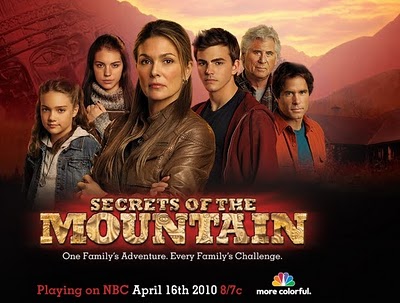Interview: David Heyman, Producer of “Paddington”
Posted on January 15, 2015 at 10:16 am
David Heyman was selected by Entertainment Weekly as one of the smartest people in Hollywood. It may be because he grabbed the rights to a children’s book called Harry Potter and the Philosopher’s Stone. I enjoyed his latest movie, “Paddington,” also based on a beloved children’s book series, and it was a lot of fun to talk to him about bringing the marmalade-loving bear to life.
Paddington is known for his “hard stare,” and that is one of the highlights of the film. Have you ever tried doing a hard stare yourself?
Not frequently, but yes I have. I’m not sure I’m quite as effective as Paddington or can make people feel quite as uncomfortable but every once in a while I have to call upon my own hard stare.
It seems like Paddington’s hard stare would be a special challenge for the animators.
I think that one of the reasons why it has taken so long for Paddington to get the film to actually happen is because the technology was not around to realize the bear. To have a bear who you are meant to feel with and care for, you know it’s the emotional center of the film. To have that little digital creation would not have been possible 10 years ago. To have eyes that listen, to make you look into them and make you feel sympathy and when he had the hard stare make you feel frightened is a great challenge and is a real testament to the brilliant people at Framestore who did the visual effects. They also did a film I made last year called “Gravity.”
Did Ben Wishaw, who provided the voice for Paddington, get wired up like Andy Serkis?
No, the difference between “Planet of the Apes” and Gollum and Paddington is Paddington is not a humanoid. So that motion capture we felt wouldn’t work and Framestore works more with animation than taking lots of reference. They did take some reference from, the brilliant clown called Javier Marzan who did a lot of comic work and tWhishaw, we filmed him performing as well.
Ben Wishaw’s voice is just perfect for Paddington.
Well, thank you. We began with Colin Firth who we thought we were so lucky to have and Colin was brilliant but his voice was just too chocolatey and velvety and mature for Paddington. And when we put his voice inside as we began to animate it just didn’t feel right. And it was quite interesting, it was a process and we realized we need someone more youthful, more innocent, with a bigger sense of wonder, a little bit off-center. And Colin obviously came to that realization before we did and so we went to Ben. As soon as we heard his voice it just felt right. He seems less confident, less assured and that felt right for that bear in that particular story.
What makes Paddington such an enduringly popular character?
We all in some ways feel like an outsider and that’s what Paddington is, he’s an outsider. So Ben’s voice really seemed to capture that. What I love about it is that it is about the kindness offered to strangers, it’s about embracing people who are other, it’s about being yourself. Paddington learns to not try and fit in but to be himself and in being himself he finds a home and a place that he belongs. And the Brown family, in our versions they are not the perfect family. They are a little dysfunctional. But through this bear, through embracing him they become whole again. And I think that in today’s world where there is so much friction and there’s so much pointing fingers at people because they’re not like us, I think that message of the kindness to strangers, of embracing others, is a really positive thing. t’s actually is a human story. It is a story about a family coming together it’s a story about an outsider finding a home, it’s about kindness, it’s about generosity, it’s about warmth.
I enjoyed the relationship between Mr. and Mrs. Brown, with him so risk-averse and her so spontaneous.
Sally Hawkins and Hugh Bonneville had almost a theater-length rehearsal period and over that time they begun to shape their characters. And in so doing I think gave it the truth that is not just paper thin.
And, not to give too much away, even your villain was acting out of slightly distorted but genuine family devotion.
There’s a wonderful Graham Greene line: to hate to lack imagination. And hate actually is so diminishing. There’s a context for why people do what they do, good or bad. And it doesn’t mean it’s okay. I’m not saying it justifies it but it explains it. And I think through explaining it in film and in life, in understanding the enemy you allow that not to be repeated. If you don’t understand it then it can just happen again and again if you just hate it you are diminishing it will happen again and again and again. To provide that motivation makes it more truthful.
I think that ultimately if you want to educate, encourage, effect change you need to make people realize the possibilities in life and embrace them. One thing I’m very proud of with this film is that it’s message is implicit but it’s not explicit. We don’t talk the message but the message is there. Because I think the danger with a lot of films, when you become polemic you end up preaching to the converted. That is why there is something in it for all ages. Seeing Paddington with my six-year-old and with my mother who is 77 and to share in that experience was one of the greatest experiences I’ve ever had in my life.

